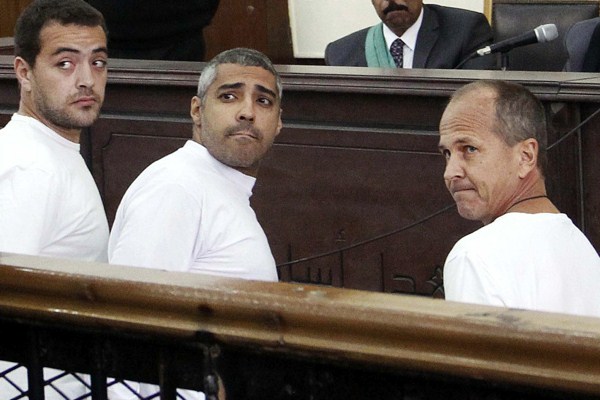Last month, after a summit in Doha where the wealthy Arab kingdoms of the Persian Gulf rallied around a joint naval and police force, Qatar’s foreign minister had some kind words for Egypt. Evoking the 1950s and 1960s, the height of pan-Arab rhetoric, Khalid bin Mohammed Al-Attiyah called Egypt “strong and capable…the backbone of all Arabs.” The nostalgia was part of a reconciliation campaign, led by the conservative Gulf countries that back Egyptian strongman President Abdel Fattah el-Sissi, to mend ties between Egypt and Qatar. That came on the heels of Saudi Arabia, the United Arab Emirates and Bahrain’s own efforts to end their long dispute with Doha over its support for the Muslim Brotherhood.
Weeks later, Qatar shut down Al Jazeera Mubasher Misr (Live Egypt), an Egyptian affiliate of Al Jazeera with unabashedly pro-Islamist coverage that has been highly critical of el-Sissi and his generals. The Egyptian government outlawed the station soon after the military ousted President Mohamed Morsi in July 2013, but it kept broadcasting from Qatar, hosting Muslim Brotherhood supporters and airing their views, while slamming Egypt’s regime. Until recently, the channel regularly referred to el-Sissi as “the first elected president after the coup.”
Shuttering Al Jazeera Mubasher Misr was the clearest sign yet that Qatar had agreed to curb its outright support of the Muslim Brotherhood, which antagonized Egypt as well as its Gulf neighbors. And with el-Sissi’s main backers in Riyadh and Abu Dhabi having convinced the Qataris to reconcile both with them and with Cairo, a regional status quo that appeared to have crumbled with the popular uprisings of 2011 continues to be put back together. Autocrats committed to consolidating their rule and sidelining opponents—most of all the Muslim Brotherhood—are supporting each other, while hatching plans for greater economic and military cooperation.

